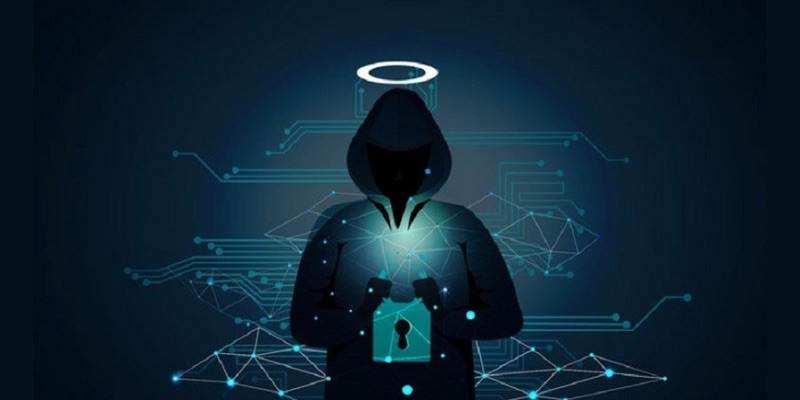Cyber Security Checklist for Travel: 10 Tips You Should Know Before You Pack
November 2, 2023, 6 min read
The fact that different regions of the world have varying climates means that there is always a location that may be visited for recreational purposes throughout the entire year. During times like these, we are more likely to unwind and let our guard down. The unfortunate truth, however, is that those who commit crimes online never take a break. Attackers are relentless and are always looking for the quickest and easiest method to get to their next target, who might be anyone. As a result, those of us on vacation become an appealing target. It is crucial to provide your employees with adequate cybersecurity training, including teaching them how to safeguard themselves when they are not at work.
Attackers are looking to take your data or money, cause mayhem, or use you to steal intellectual property from your work to further their agendas. Everyone has a role to play in the battle against cybercrime since the number of cyberattacks is increasing at an alarming rate, and their effects have escalated to encompass the taking of human lives. The first step in the right route is making sure that we never make avoidable mistakes and never let ourselves become victims of attacks that could have been avoided.
Cyber Security Checklist for Travel
This article provides helpful advice for keeping your vacation away from home safe by outlining its points through the lens of an attacker’s kill chain, which consists of 10 tips.
1. Make Sure All of Your Electronics are Up to Date
Ensure all of your electronic equipment is up to date before you set out on your trip. This applies to your laptop, as well as your smartphone and tablet. Your devices are protected from the most recent dangers by crucial security patches frequently included in updates. Cybercriminals are constantly searching for security flaws in old software, which they can use to obtain unauthorized access to your devices if they are successful in finding and exploiting the flaws. By ensuring that all of your software and hardware are up to date, you are strengthening the first line of defense against these threats. If you want to avoid having something go wrong right before you leave, it is best not to put off doing this task until the very last day. We have all had times when an update has caused problems for us, and that is the last thing you want to happen.
2. Protect the Network in Your Home
If you will be away from home for an extended period, you might want to consider turning off your router unless you require it for gadgets in your smart home. Cybercriminals may find it simple to gain access to a network through unused routers. By turning it off, you remove a point of entry that hackers could use to compromise your home network. If you must keep it on, double-check that it is protected with a robust and one-of-a-kind password and that the firmware has the most recent update.
3. When Using Public Wi-Fi, Use Cautiously
Wi-Fi networks available to the public in airports, hotels, and cafes may be handy, but they are frequently not secure. Listening in on these networks to acquire sensitive information is a simple task for cybercriminals. If you need to connect, consider utilizing a virtual private network (VPN) such as Avast SecureLine VPN. Your internet connection will be encrypted via a virtual private network (VPN), which will keep your online activities secret and safe, even when you are using public Wi-Fi networks. Using a virtual private network (VPN) allows you to watch TV episodes and films from your own country even while you are outside, which is one of the many advantages of using a VPN.
4. Be Sure To Keep Your Private Information Secure
When performing sensitive activities on the computer, such as online banking, you should avoid utilizing shared computers. Shared computers risk being infected with malware that monitors and records users’ keystrokes, putting their private information at risk. If you have no choice but to use a public computer, under no circumstances should you attempt to log in or input any credentials anywhere. There is a high probability that the computer has been compromised and that malware is monitoring everything that is taking place on it. Once you are finished, delete the browser’s history before you log out so that the next user won’t be able to see what you have been looking at.
5. Enable The Use Of Two Separate Authentication Methods
Two-factor authentication, also known as 2FA, is an additional security measure that can be added to your online accounts. To access your accounts, you need not only a password but also a second factor, which is typically a code that is transmitted to your mobile device. Because of this, even if someone were to steal your password or correctly guess it, they would still be unable to access your account as long as they did not have the second factor.
6. Create Backups Of Your Data
Make sure you have a backup of your data before you go. This might be done using a cloud storage service or an external hard disc. Even if the device that contains your essential information and images is misplaced or stolen, you will still be able to access them. Performing regular backups protects you not only from data loss caused by device failures but also from data loss caused by virus attacks.
7. Make Sure To Keep An Eye On All Of Your Devices
In no circumstances should you ever leave your devices alone in a public setting? Not only might the items themselves be taken, but the thief may also gain access to your personal information. Maintain constant visual access to your devices and, if possible, use biometric security capabilities such as fingerprint or face recognition.
8. Be Wary Of Fraudulent Phishing Attempts
Be wary of any emails or texts that come to your inbox out of the blue asking for your personal information. During peak travel seasons, con artists frequently step up their phishing activities by impersonating airlines or travel firms to deceive victims into handing over their sensitive personal information. Before you click on any links or provide any information, you should always make sure the sender is who they say they are.
9. Ensure The Safety Of All Physical Devices
When you are traveling, you should always make sure to have your electronic gadgets with you. If you will be staying at a hotel, it is highly recommended that you put them in the hotel’s safe. If you do not have access to a safe, you should secure them in your luggage. Do not leave electronic gadgets alone or provide them to unknown people. Using your device while you’re waiting at the airport or at a cafe? When you need to go the restroom or get another latte, please don’t leave it alone with a stranger while you’re gone.
10. Do Not Automatically Connect
Disable any remote connectivity and Bluetooth when you are away from home. Specific electronic gadgets are equipped to seek out and connect to available wireless networks on their own. Your device can connect with other devices, such as headphones or the infotainment system in your vehicle if it has Bluetooth. You can connect to wireless and Bluetooth networks just when you want to by disabling these functions, allowing you to connect only when you want to. Turn them off if you are not going to be using them. These functionalities can allow roaming fraudsters access to your devices, which is a risk when you are out and about.
Conclusion
Criminals are seeking new opportunities to take advantage of the growing number of people who travel. Follow these ten cybersecurity travel precautions to ensure that your information does not move to an undesirable location, which will secure not only your personal information but also the critical data of your company.




























